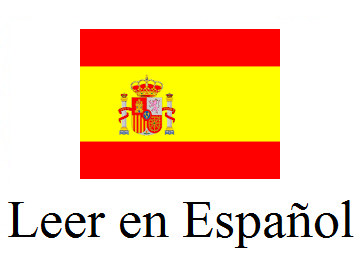Blog News
More brain circulation less brain drain
Posted On : May 23, 2016
More brain circulation less brain drain
“Brain drain” is a big concern, especially in the developing world. “Brain drain” is the loss of intelligent, knowledgeable, and well educated individuals from nations in the developing world, because they chose to migrate to developed nations. This often occurs as soon as students graduate—instead of returning to their home countries, they decide to stay and work in the country where they obtained their advanced degree. While this practice is often understandable from the viewpoint of the individual, it is a significant loss to the fledgling nation that could well use their specialized skills.
This phenomenon has been well studied and discussed over the years, but maybe there is something missing in the standard approach to understanding it. The mobilization of students from their country to another country could be seen as a phase transition—like liquid water becoming steam, or vice versa. In this analogy, the students (water molecules) go from their country (one phase) to another (the second phase). With water this process initially proceeds mainly in one direction (such as liquid water to steam). However, when the surrounding environmental conditions change the process can reverse and gaseous water can condense back to liquid water. With students, the current reality is that they basically go in one direction with very few returning. The important question is: what changes in environment can leaders make to enhance the process of students returning to their home countries?
When water or other molecules transition to the second phase, at some point molecules will start to return to the original phase. The reverse process can be accelerated if more energy is given to prop more molecules to the second phase. Enhancing the forward process benefits the reverse process. The number of professionals with advanced degrees moving in either direction will grow if there are more of them. Leaders of the under developed nations should enhance the rate of the forward process and send more students overseas to get advance degrees if they want more graduates to return. The premise of this analysis is that everybody is free to come and go, as it should be. More freedom is always better, but often this is counter intuitive. Investing in the people at large, promoting the students to live better lives with no strings attached as a means to achieve the development of the nation, is also counter intuitive. But there could be more to this than just the focus on the original “molecules”. Using our water analogy, when the conditions are right not only do a large number of the original molecules transition back to liquid water—other water molecules, already in the air, also condense and add to the total volume of liquid water. What if what really matters is not who is that person with a graduate degree? In other words, what if what really matters is the degree itself, the knowledge itself, the experience, the connections, and the achievements…and NOT the name, ethnicity, cultural background of the individual (or his or her place of birth). The leaders of an under developed nation can increase the number of people with advance degrees by enacting policies to attract them from all over the world—regardless of who they are, what their mother language is, or what their age is. Just like in a phase diagram, there could be more than two phases of the same substance.
Let’s use my friend, Dr. Willem Koppenol, as an example. Dr. Koppenol was a professor at Luisiana State University when he was recruited by the Swiss Federal Institute of Technology (also called ETH). Along with the Max Planck Institute and a couple of colleges in the United States, the ETH is among the most prolific scientific organizations in the world (it is perhaps best known for being the place where Albert Einstein obtained his PhD). Dr. Koppenol was not fluent in German, and for a few years he was allowed to do his work in English…with the expectation that he would work on and perfect his German. Of course he did this, and eventually performed in both languages at the same level.
Looking at the problem of brain drain within the context of the globalization can open the eyes to new perspectives. An opportunity can be seen where there was a problem.
There are a huge number of professionals who could be attracted to teaching, advising, and managing projects anywhere in the world. Now more than ever, people of any age are open to crossing borders. Some people would go anywhere if they were given an irresistible offer. The key is to find out what these irresistible offers are: airplane tickets, free housing, lower or no taxes, a safe environment to raise a family, free utilities, or a car with free maintenance—these are just a few ideas. The target could be a retired professor from a tier one research university, a former scientist or engineer from a large technological or pharmaceutical company, the former CEO of a large corporation, or an experienced and accomplished public servant (like a former major, or a director of some public program). The options are endless, and the sky is the limit! And let’s face it, in the developing world the lack of experience in the work force is a limitation in many domains—and it happens at all levels. It could be the president of the country or the president of the largest university. The knowhow, memory, or experience cannot “stick” in the society, because it is only occasionally that the country (or the companies) embark upon the new, ambitious, and truly challenging projects that involve creating new technologies and/or tools. But there are people out there who have devoted every day of their lives to making possible the impossible. If well-articulated, many of them can “lift up the bars” in a new environment—especially by mentoring the unexperienced. For a developing country, it could take decades to construct a research platform that includes awarding advance degrees. But by employing a more creative approach, it can be done significantly quicker. The leaders of most developing countries have been sitting on the problems of brain drain, poverty, etc., for far too long (or, worse yet, have buried their heads into the sand and are ignoring these issues). However, with a bit of creativity it is possible to advance developing societies fast and to inexpensively solve these problems.
A good example of this is Israel. The incredible advance of this small and young country is due, for the most part, to a continuous flow of skilled immigrants. Right from its inception in 1948, Israel put itself “on the map” and made itself “counted”! It had a world class symphonic orchestra, and, quickly enough, its universities produced discoveries worthy of a Nobel Prize. Today, per capita, Israel gives birth to more startups than any other nation in the world. Israel has created a system in which its world class universities award advanced degrees, and then the graduates further their training by doing post doctorates overseas. At the same time, Israel is attracting talented young professionals who are interested in doing their doctoral and post-doctoral training in Israel. That is brain circulation at its best.
In this way, by attracting very skilled professionals underdeveloped countries can transform the process of brain drain into a process of brain circulation and overcome many problems, quicker and better.
But numbers matter. Bringing a few professionals is not going to work. There must be a policy and hard work behind it. Most importantly, the entire nation should be onboard and understand the objective.

